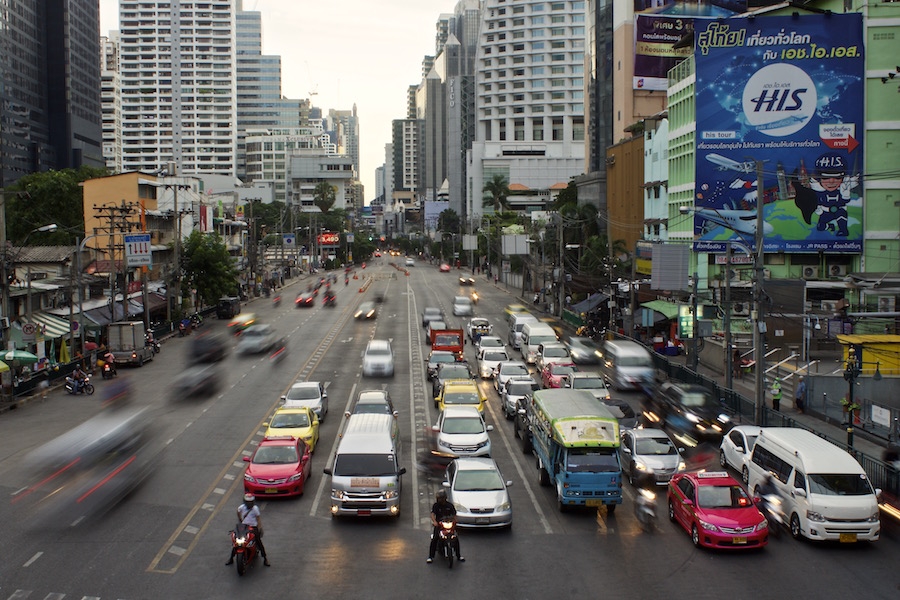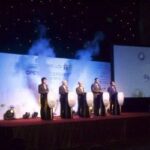Government encourages investment, but obstacles remain.
Rows of rainbow-colored, chrome-plated tricycle taxis, called tuk tuks for their distinctive engine sound, line the streets of Bangkok. But the tuk tuks of the future might make no sound at all.
Thailand’s ruling junta seeks to electrify tuk tuks, along with buses and cars, in a nationwide push toward electric vehicles. The government seeks to curb the country’s dependence on imported oil while taking advantage of its numerous solar facilities.
This momentum creates niche opportunities for some Oregon companies, but the road ahead lies pockmarked with economic and political potholes.
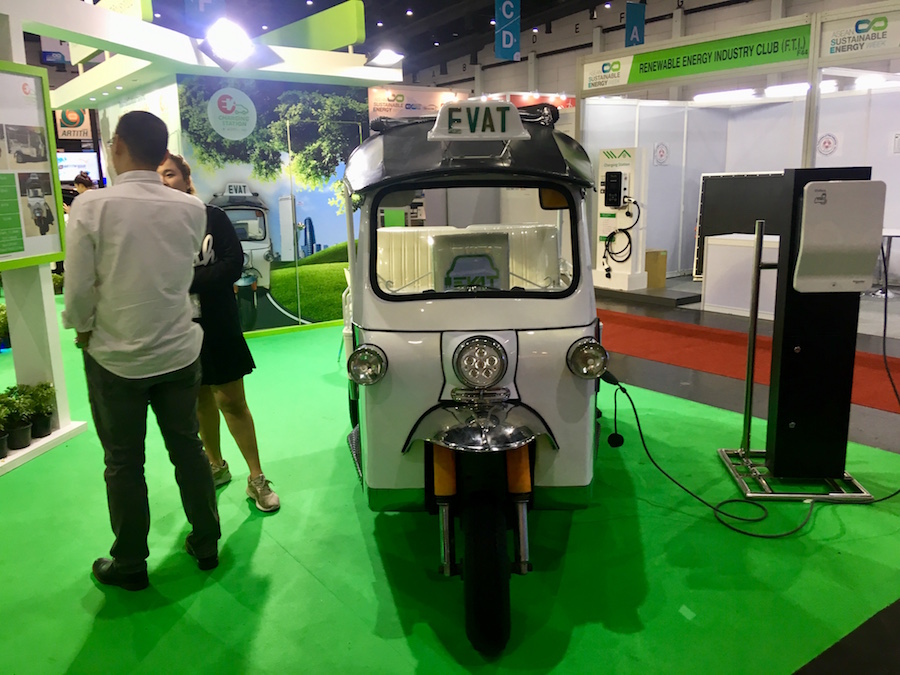 An electric tuk tuk on display at the ASEAN Sustainability Week trade show.
An electric tuk tuk on display at the ASEAN Sustainability Week trade show.
On a trade mission to Bangkok and the ASEAN Sustainability Week trade show earlier this month, several small Oregon companies made tentative forays into the Thai electric vehicle marketplace. Mike Gerard, CEO of two-year-old company Mobility Cubed, uncovered a possible joint venture with a company in Southeast Asia to manufacture and sell his electric “world buses” in the region. The partner company plans to conduct trials with a few buses.
“The opportunity is a direct result of our visit,” Gerard says. “There’s no doubt about that.”
The world bus evokes some of the features of Songtels, the glorified pickup trucks that serve as local transportation in many Thai cities. It’s also cheaper than many electric buses on the market.
Gerard declined to disclose the country where the venture will be located, but said it’s not Thailand. The vehicles could be used in Thailand, however, and surrounding countries.
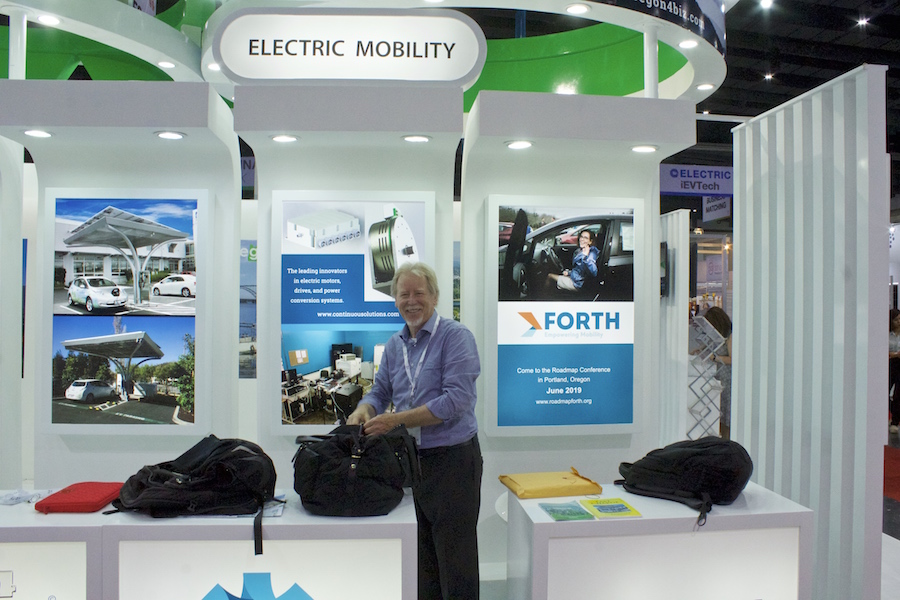 Hans van der Meer, founder of EV Global, sets up for the ASEAN Sustainability Week trade show.
Hans van der Meer, founder of EV Global, sets up for the ASEAN Sustainability Week trade show.
Hans van der Meer, a Dutch entrepreneur who founded electric charging company EV Global also made progress. He moved forward with a plan to bridge cutting-edge DC fast chargers for electric buses with the inadequate grid power supply, using a battery he developed.
Bangkok-based Polytechnology expressed interest in van der Meer working on the battery system in a partnership with Samsung. In this venture, Thailand is ahead of the U.S., which has yet to implement electric bus fast charging at scale. EV Global is working on determining the scope and pricing of the project.
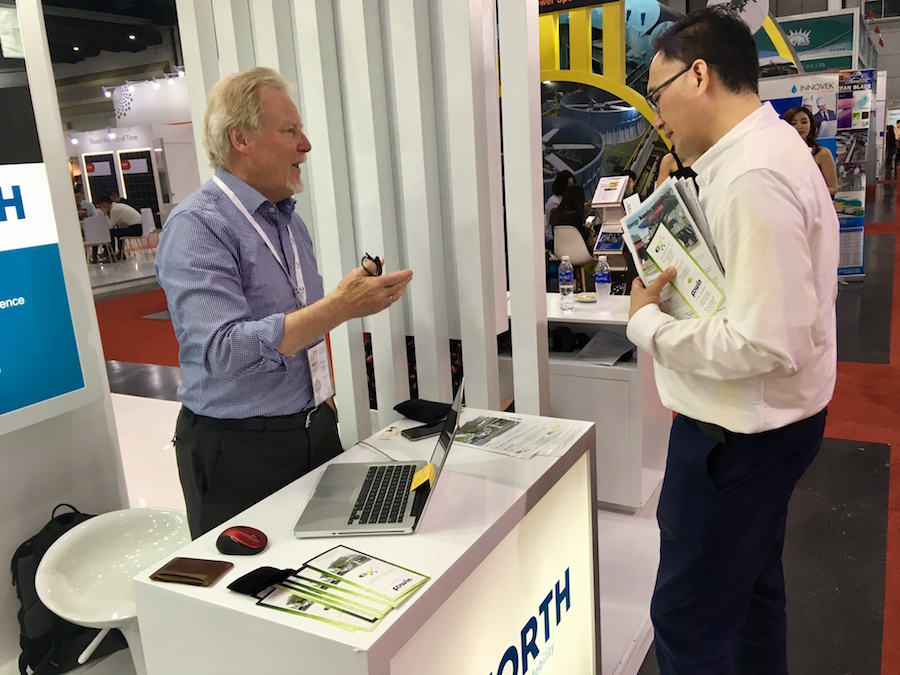 Van der Meer answers questions at the Oregon trade show booth.
Van der Meer answers questions at the Oregon trade show booth.
While in Bangkok van der Meer met several times with Narratchai Leeraphante, president of Polytechnology. A longtime member of the Electric Vehicle Association of Thailand, Leeraphante hopes electric tuk tuks and buses will alleviate pollution and give impoverished drivers a break through cheaper fuel costs.
In the next few years he anticipates the cost of EVs will drop, and politicians and business leaders will become more receptive to the technology.
The Electricity Generating Authority of Thailand, a state-owned utility, plans to add 50 new level 2 chargers in a partnership with BMW Thailand’s ChargeNow program and charging company Greenlots, according to a Greenlots press release. The Board of Investment, Thailand’s economic development agency, recently debuted incentives for companies that produce electric vehicles, charging stations or lithium ion batteries.
“We are moving fast here,” says Leeraphante.
In a meeting with Oregon companies, Panee Chengsuttha, an investment advisor with BOI, showed enthusiasm for EVs. Referring to Nissan and Toyota, he said, “it’s not difficult for them to move from hybrid to EV. It’s coming soon.”
Yet electric vehicles in Thailand face roadblocks. Publically, politicians promote EV technology. Privately, they’re reluctant to make the expensive capital investment.
“We do have concrete policy on this (EV investment),” said Kitti Kumpera, a retired Thai businessman who worked at EGAT for 20 years, “but practically it’s different.”
Business leaders at EGAT, Leeraphante says, have a “legacy way of thinking.” They seek low cost projects with early returns. According to the “Thailand 4.0” national master plan, EGAT “is supposed to promote this kind of thing,” Leeraphante says, “but they’re not.”
Consequently, Bangkok’s charging network remains underdeveloped. As of 2013, according to a report from the Thailand Automotive Institute, there were 16 charging stations in Bangkok. Gerard says there are concerns with the cost of chargers, and the safety of electric vehicles in Thailand’s notorious flood waters.
Three wheelin’
This isn’t the first time Thailand has dabbled in Oregon’s electric mobility technology. After the same trade mission last year, a Thai consul general paid a visit to Eugene to test drive a three-wheeled electric “Fun Utility Vehicle” designed by Arcimoto. They thought the electric tricycles might offer a highway-ready alternative to electrified tuk tuks.
Arcimoto Vice President Jesse Fittipaldi says that would be a long ways off, however. They never heard from Thai officials after the visit. The company remains focused on building its domestic business in Oregon, Washington and California before going international.
Car manufacturing also poses challenges. Two years ago, Reuters reported that the nation’s largest energy company, PTT, signed an agreement with six automakers to focus on EV development. Sometimes called the “Detroit of Asia,” Thailand is an auto manufacturing hub. But because Thailand charges zero export tax and lacks incentives for keeping EVs in country, the vehicles manufactured there will likely be exported.
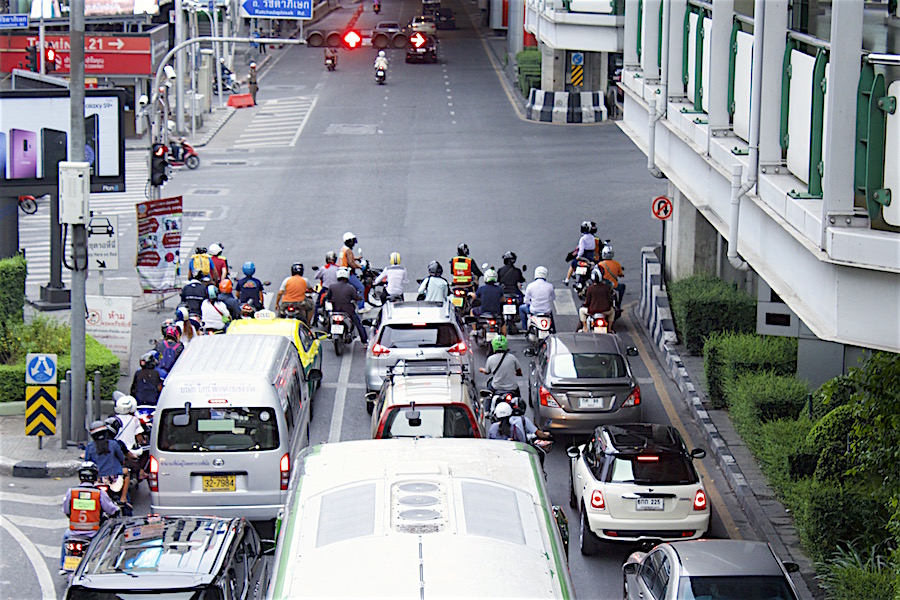 Bangkok traffic at rush hour. Sometimes called the “Detroit of Asia,” Thailand is an auto manufacturing hub.
Bangkok traffic at rush hour. Sometimes called the “Detroit of Asia,” Thailand is an auto manufacturing hub.
A segment of the auto manufacturing cluster is also pushing back against all-electric vehicles, Kumpera said. Ten years ago, Thailand rolled out a government-sponsored “eco-car” program. The plan offers tax incentives to vehicles with gas engines smaller than 1.3L (1.5L for diesel), fuel economy of at least 54.7 mpg and carbon-dioxide emissions below 100 g/km. Large Asian automakers, including Toyota and Nissan, manufacture and sell eco-cars in Thailand. According to Kumpera, these automakers view EVs as a threat to eco-cars.
Even if American companies break through the barriers, China, with its dirt cheap EVs, awaits on the other side. China intends to become an EV powerhouse. The Nation reported last year that the country announced all automakers producing more than 30,000 vehicles must make 10% of them EVs by 2019.
Despite the challenges, Oregon companies continue to search for creative applications.
This year, for instance, Gerard also talked with a Thai legislator interested his electric buses for industrial uses. The vehicles could transport materials and tools, for example, in warehouses.
“I think we’ll have to find niche opportunities,” Gerard says, “but they’re there.”
Business in Bangkok: Our coverage of the third annual Business Oregon trade mission to Thailand
Tank Talk: A Portland clean energy CEO meets the matriarch of a Thai armored vehicle empire.
Oregon companies seek niche in Thailand’s waste-to-energy market
OHSU Expands Bangkok Footprint
Photo Gallery: Dispatch from Bangkok
To subscribe to Oregon Business, click here.


